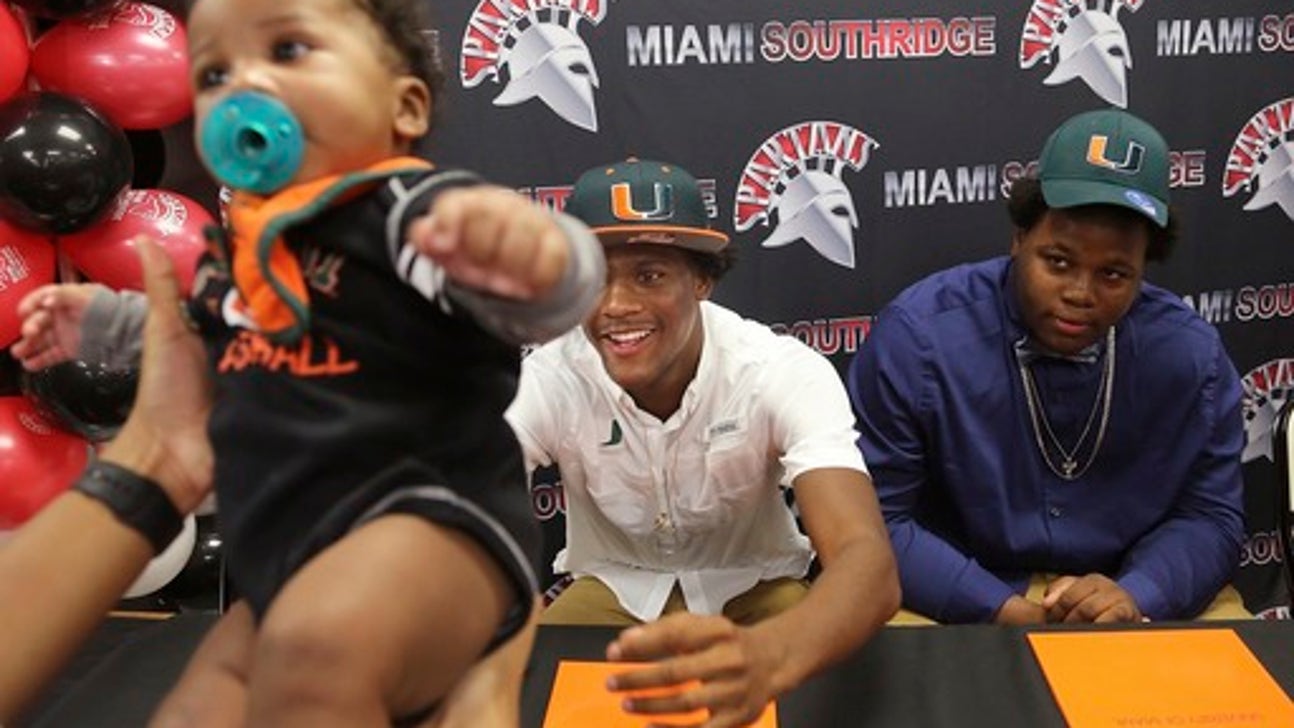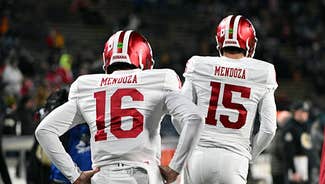
Early signing period sees hundreds of players commit
The new early signing period was years in the making so do not expect changes to it after the first one.
Mid-American Conference Commissioner Jon Steinbrecher, a member of the NCAA's football oversight committee who first proposed a December signing period in 2014, said the next step is to gather feedback from the participants and let an entire year of the new recruiting calendar play out.
''I'm looking forward to doing some downloading once we get through this,'' Steinbrecher said. ''Listening to the coaches. Listening to incoming students. Listening to an array of folks. I don't think it's a one-year thing. I think it's a multiyear thing.''
The NCAA legislation approved earlier this year created a December signing period to go along with the traditional February date, and also created new opportunities for high school players to make official visits to colleges in the spring. There are also new regulations for summer football camps and schools will be allowed to hire an additional assistant coach starting in January. The legislation was passed as a package with the understanding that all the new rules would all affect each other.
''I think we need to let this thing breathe,'' Steinbrecher said. ''We need to let it work. We need let it become normalized and then step back and really think through it.''
As the three-day early signing period opened for the first time on Wednesday, about 1,850 players signed national letters of intent, according to ESPN recruiting analyst Tom Luginbill. That number represents approximately 66 percent of the total number of players that sign in the Bowl Subdivision in an average class. About 97 percent of the players who signed Wednesday had already verbally committed to those schools, according to Luginbill.
The early returns seemed to be more positive than negative. Alabama's Nick Saban drew a lot of attention days before the signing date when he said that he had ''not talked to one coach who was happy with it.'' But plenty of coaches said they were pleased to do more work in December instead of January.
Washington's Chris Petersen, Maryland's DJ Durkin, Purdue's Jeff Brohm and Oklahoma State's Mike Gundy all joined Clemson coach Dabo Swinney in endorsing the new signing period.
''I don't think you'll see as much change as before,'' Brohm told reporters, referring to recruits flip-flopping commitments. ''Now, everyone can be very selective to fill needs in February.''
Indiana coach Tom Allen agreed: ''Now that it's over, it's great because now you have these guys already locked in and you don't have spend the Christmas season focusing on these 23 guys. Now you can focus on the last few that you have available, and you'll know what's out there, and you'll be able to focus on them.''
Even a skeptic like Ohio State's Urban Meyer seemed to warm up to the new signing period. Signing one of the best classes in the country can put a coach in the good mood.
Still, Meyer spotted potential problems.
''What I've had happen to me is I've talked to several players and my answer to them, because we're straightforward with them, is that I don't know if I have a scholarship right now because I don't know who's leaving for the NFL draft,'' Meyer said. ''And a couple times, more than a couple, I got a comment back saying, `Coach, this school is telling me if I don't sign on the 20th, I'm out. They're taking my scholarship offer.' And that's not what the intent of the rule was.''
Another issue almost certain to arise with the early signing period is assistant coaches changing jobs. Assistants are the first point of contact for recruits and those relationships often are a major factor in a recruit's choice. Even after the February signing date, it is not uncommon for an assistant coach to change jobs and leave recently recruited players behind. The job market is even more active over the next two months.
Penn State coach James Franklin said he tells recruits that picking a school based on an assistant is shortsighted.
''There's going to be turnover with coaches,'' Franklin said.
How that plays out over the next month will be among the many things Steinbrecher will be monitoring. What was no surprise to him was that the early signing period immediately became the primary signing period.
''Wherever we put the pin in and said, `OK, this is the early signing date,''' he said, ''that's where the preponderance of signings would occur. It just would naturally do that. It confirms what I think we thought would occur.''
---
AP Sports Writer Mitch Stacy and Associated Press writer Jeffrey Collins contributed to this report.
---
Follow Ralph D. Russo at www.Twitter.com/ralphDrussoAP
---
For more AP college football coverage: http://collegefootball.ap.org and http://twitter.com/AP-Top25



